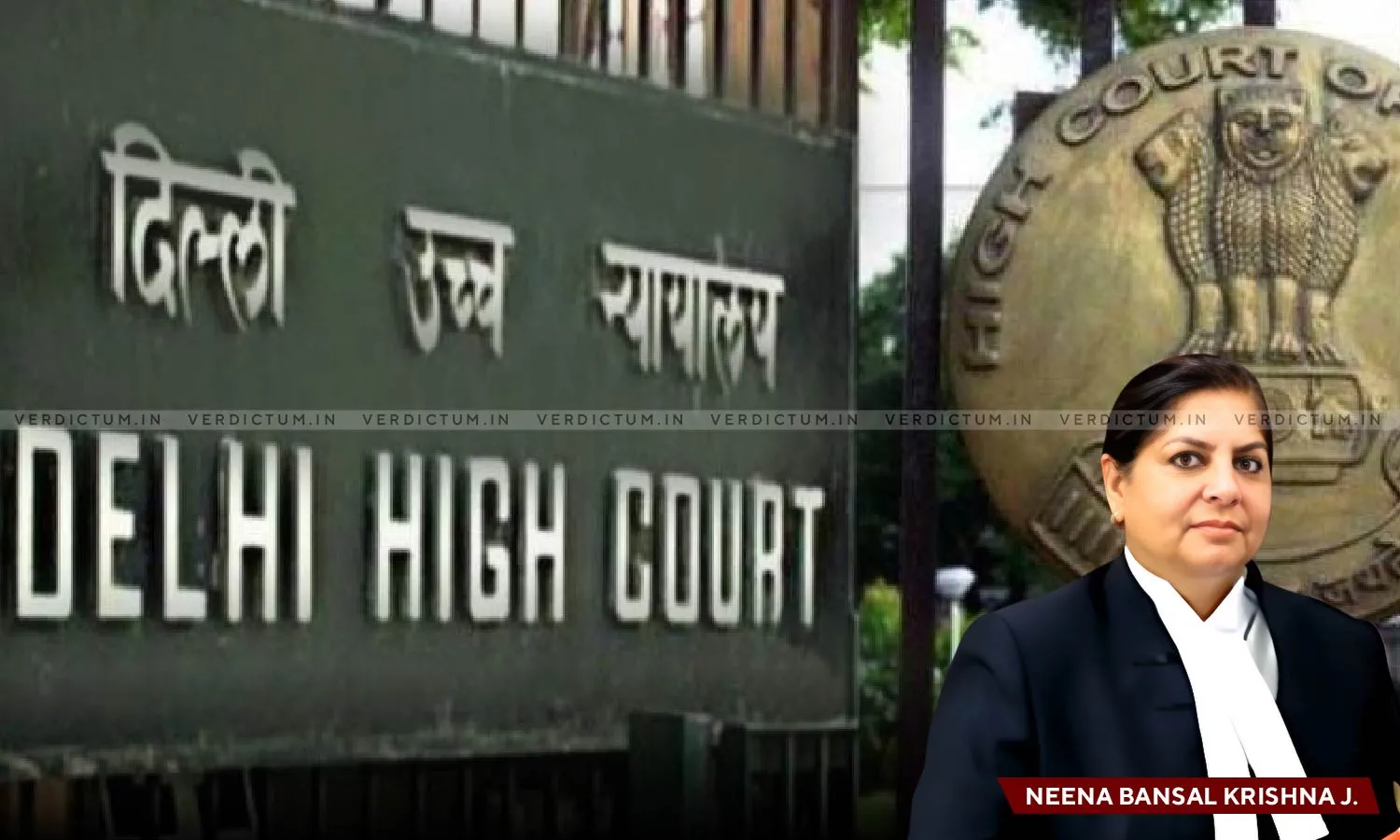Delhi HC Refuses To Quash Extortion & Forgery Case Against Married Woman Who Allegedly Posed As Divorcee, Filed Rape Case And Demanded Rs. 1 Cr
The Delhi High Court refused to quash a case of extortion and forgery against a married woman who allegedly posed as a divorced woman to marry a man and then later filed a rape case against him demanding Rs. 1 Crore.
The Court dismissed a petition filed under Articles 226/227 of the Constitution seeking to quash a second FIR registered under Sections 379, 406, 420, 467, 468 and 471 of the IPC against the accused. The Court held that the allegations in the second FIR were distinct in substance and there were specific allegations made of illegal transactions, despite some allegations being “similar or overlapping.”
A Single Bench of Justice Neena Bansal Krishna observed, “The registration of FIR is a mechanism for verification of the allegations and averments made in the Complaint and does not prima facie prove the guilt of the petitioners. It is still open to the Investigating Officer to investigate the alleged crimes and to submit a report accordingly.”
Advocate Shree Prakash Sinha appeared for the petitioners, while ASC Rahul Tyagi represented the respondents.
The complaint alleged that he met the accused who had introduced herself as a divorcee and a single mother of a 4-5-year-old boy. After they both got into a relationship, it was alleged that the parties got an affidavit of marriage prepared and solemnized their marriage.
The allegations against the accused included the theft of three branded watches, five pairs of expensive eyewear, and an Audi A6 vehicle. It was further alleged that the accused allegedly made unauthorised transactions from the complainant’s account and threatened to misuse blank cheques obtained from him.
The first FIR was registered only to the extent of forging the documents of a Mercedes car and the threat calls to the complainant from the accused.
The accused argued that the second FIR was based on similar facts and that two FIRs on the same complaint were not maintainable. It was further asserted that under Section 300 of the Cr.P.C. read with Article 20(3) of the Constitution, a person cannot be subjected to double jeopardy.
The Court stated that the second FIR was distinguishable from the first FIR since the substratum of both the complaints were “evidently different.”
“Pertinently, the accused persons are different in the two FIRs as the petitioner, who have been named as accused here, are not the named accused in the earlier FIR, which had been registered against the petitioner No. 1 and four other persons,” the Court remarked.
While some allegations were similar, the Court noted that there were specific allegations made of illegal transactions by forging the signatures and making multiple transactions without the knowledge of the complainant from unknown locations of IDBI Banks in the second FIR.
“Even if the modus operandi is the same in all alleged offences, these may classify as "same kinds of offences" but do not constitute "same offences" because if they have been committed multiple times then each time it constitutes a separate offence warranting the accused be tried for all of the offences,” the Bench explained.
Consequently, the Court observed, “In case, the Investigating Officer finds that there are no merits in the allegations or that these allegations have already been examined in the earlier FIR and found to be baseless, there is nothing which prevents him from submitting the Final Report, in terms of his investigations. There is no ground of quashing of FIR at this stage.”
Accordingly, the High Court dismissed the petition.
Cause Title: Ritika Raj & Ors. v. The State & Anr. (Neutral Citation: 2024:DHC:6627)
Appearance:
Petitioners: Advocates Shree Prakash Sinha and Shwetam
Respondents: ASC Rahul Tyagi; Advocates Sarthak Chaudhary, Himanshu, Seerat Fatima, Muzaquir Hussain, Naseem Tabrez, Saleem Hussain, Vaibhav Kashyap and Kshitij Mathur




